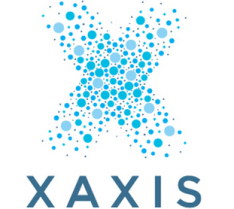GroupM global digital boss says Xaxis ‘completely transparent’ and defends content sharing play
 GroupM’s chief digital officer Rob Norman has told a forum of members of the Interactive Advertising Bureau (IAB) that its agency trading desk is “completely transparent”, while also declaring that publishers and rival agencies had nothing to fear from its push into the recommendation space with Plista.
GroupM’s chief digital officer Rob Norman has told a forum of members of the Interactive Advertising Bureau (IAB) that its agency trading desk is “completely transparent”, while also declaring that publishers and rival agencies had nothing to fear from its push into the recommendation space with Plista.
Speaking at an IAB event yesterday Norman told the audience the criticism of Xaxis over arbitrage, where online ad inventory is sold at a higher price than it was bought without disclosing the original price to the client, comes down to a misunderstanding around transparency and disclosure.
“The first thing is I would say is Xaxis is completely transparent,” said Norman. “I should define what transparency means. Transparency means that you have a contract between two parties and the parties adhere to terms.
“When people talk about transparency what they are really talking about is disclosure, which is not the same thing as transparency. I think it is important to recognise that.“What we believe we are doing is selling packaged outcomes to our clients and if we are transparent about it then the disclosure issue is secondary,” he said “We have over 3,000 what we call opt-in contracts around the world. Clients who specifically read the terms of the Xaxis business model and make a decision to sign up or not, to be part of the world that Xasis is.”
Norman also took aim at his rivals over arbitrage, arguing that Xaxis was open about its practice and said this was not the case with all agency groups. As revealed by Mumbrella Asia last month GroupM is also set to open a second ‘bespoke’ trading desk for clients in the coming months.
He said: “The Xaxis model does indeed depend on nondisclosure and it is interesting that OmniCom on their earning call, recently, having been working under a nondisclosure business for last two or three years actually admitted that they were about to start doing that. Which I think is interesting to admit you’re about to start doing something you’ve been doing for two to three years.
“But that’s okay I don’t mind that, it’s nice that they have come out. It makes us happy. What is interesting is that the people who have come out are the people who are listed on the London Stock Exchange/New York Stock Exchange, because those people are governed by Sarbanes Oxley regulations, which means you have to be disclosing.
“It is interesting that some of those (groups) who aren’t listed on either of those have been slightly less forthcoming.”
Norman said what clients were buying was a result created by bringing together data and inventory, adding the media agency and trading desk had a right to make a profit arguing some of the global debate over the practice meant some multinational now had a “religious objection” to the practice.
“Our view of the world is that what Xaxis does, powered by GroupM, is that we have very good visibility with clients who are in the market and we are prepared to make decisions around of the acquisition of inventory and the acquisition of data and development of technology that we use to power Xaxis in order to deliver an outcome or result for our client.”
“(Some multinationals) have an almost religious objection to agencies making money, other than through fees and commissions. I have read the whole of Genesis and its not mentioned anywhere,” he quipped.
“I think the world will move in our way. For some clients who are not in themselves data rich we will provide an end to end solution while for the others that are we will create other Xaxis inventory products that will sit along everyone else’s inventory products.”
Speaking to Mumbrella after the event Norman addressed growing concerns among some publishers and rival agencies about its move into the burgeoning content recommendation space.
In January GroupM announced it had bought German digital media specialist business Plista, a rival to the likes of Outbrain, but Norman said that there was nothing to fear from the move which could mean that GroupM has access to the data of rival media agency’s clients.
“I don’t think there is any intention by GroupM to suck the data of the market out of clients,” said Norman. “Plista is a business we like because of the data that is has, but that is more about the optimization, helping agencies and clients do things that work.”
He also said he saw opportunity in helping the recommendation space move away from a more “click bait” model where consumers were fed links that are not really useful.
“We see the area of content recommendation generally as a mechanism for publishers to legitimately monetise more real estate than they could before,” he said. “I worry that from a reputational point of view, and this isn’t a criticism of Outbrain, but that I think there is quite a bit of click arbitrage going on people saying come and see this and they go through a slide show of 20 other things.
“We charge on the cost per click, cost per recommendation basis and therefore the issue of being below the fold and therefore non viewable goes away. On the basis that you don’t pay until an event takes place.”
During a hangout with Mumbrella last month Outbrain founder Yaron Galai said the service was opposed to click bait headlines as it hurt long-term use of recommendation engines by consumers.
Plista is reported to be talking with major Australian publishers including Fairfax Media and News Corporation about moving into the Australian market, a move which has raised concerns in some quarters around a potential conflict of interest as an agency group with control over millions of dollars of clients’ advertising spend, and working with those same publishers on driving recommendations.
Asked about this Norman said: “People can be concerned about whatever they want to be concerned about. WPP, more broadly, know the fine line that exists between business that exist in their own right in a contained world and businesses that exist to specifically advantage wider services within GroupM and WPP.
“I don’t think its something people should be afraid about. If the fantasy notion is that WPP or GroupM uses an insight for an ad that runs on Plista, somehow uncovers an insight and then goes and pitches for a competitor client – when you play that out there is something quite fantastical about that – and therefore unlikely.”
Nic Christensen





I need to get back to work selling packaged outcomes at a 200% more than I paid for them
User ID not verified.
I disagree that the disclosure issue as you call it is secondary. Clients want to know how their advisors make money as differing incomes by channel can impact on the objectivity of advice given.
User ID not verified.
“The Xaxis model does indeed depend on nondisclosure” Nuff said.
User ID not verified.
What is this drivel? A media group that earns a better margin with a specific channel lacks all objectivity.
User ID not verified.
Disappointing hypocrisy from an otherwise very bright and insightful bloke.
Software (incl Google) is eating the world and the marketing software stack is about to wipe out the digital cash cow from agencies. Arbitrage and agency-as-publisher short term thinking will be a strategic error the industry looks back on one day.
User ID not verified.
“I don’t think there is any intention by GroupM to suck the data of the market out of clients,” – Yo, Rob, you either know or you don’t! Come on none of us really believe you anyway.
User ID not verified.
Disingenuous at best. There’s clearly a mandate on GroupM’s part to force publishers to accept Plister and and Xaxis in a trading arrangement. Enough said.
User ID not verified.
Have to admit the M are amazing at leveraging their clients ad spend to benefit their own interests.
If you’re publisher X and they come to you on one hand with an upfront deal, and on the other hand as a mandate asking for inventory for the DSP and integration for the content rec software are you really going to say no?
This has been allowed to happen as the media have become so weak at generating rels with actual brands and clients.
User ID not verified.
A packaged outcome with an undisclosed margin at the least causes misalignment between what’s best for the client and the agency.
Some trading desks prefer to sell partnerships over packages, which sees alignment between client and agency goals.
User ID not verified.
We’re really transparent. Except when it comes to your money.
Said the snake oil salesman
User ID not verified.
If the MGroup has 3,000+ clients signing contracts agreeing to non-disclosure terms, so that they can buy cheap audiences, (and Omnicom, Publicis, Aegis also having thousands of customers doing similar) – isn’t all this hand-wringing over non-disclosure of agency trading desk profit margins a moot point?
If you dont like the model or the terms of business someone is offering, dont buy it.
No one is FORCING clients to spend money with ATDs, or doing it without their knowledge.
To all the clients complaining about non-disclosed profits – dont sign the contracts.
To the clients who have signed the contracts – if you are not getting a large cost advantage over normal display – hold your agency to account and go back to buying display ads.
Fucking simple.
And can you please stop clogging the internet with your comments about why its unfair not to know how your supplier makes money down to every last cent, because you know, thats your god given right when you pay them one and a half percent commission and on top of that sit on their invoices and pay them 3 months late.
Fucking dickheads.
User ID not verified.
Hmmm … a healthy dose of pragmatism. Well done.
User ID not verified.